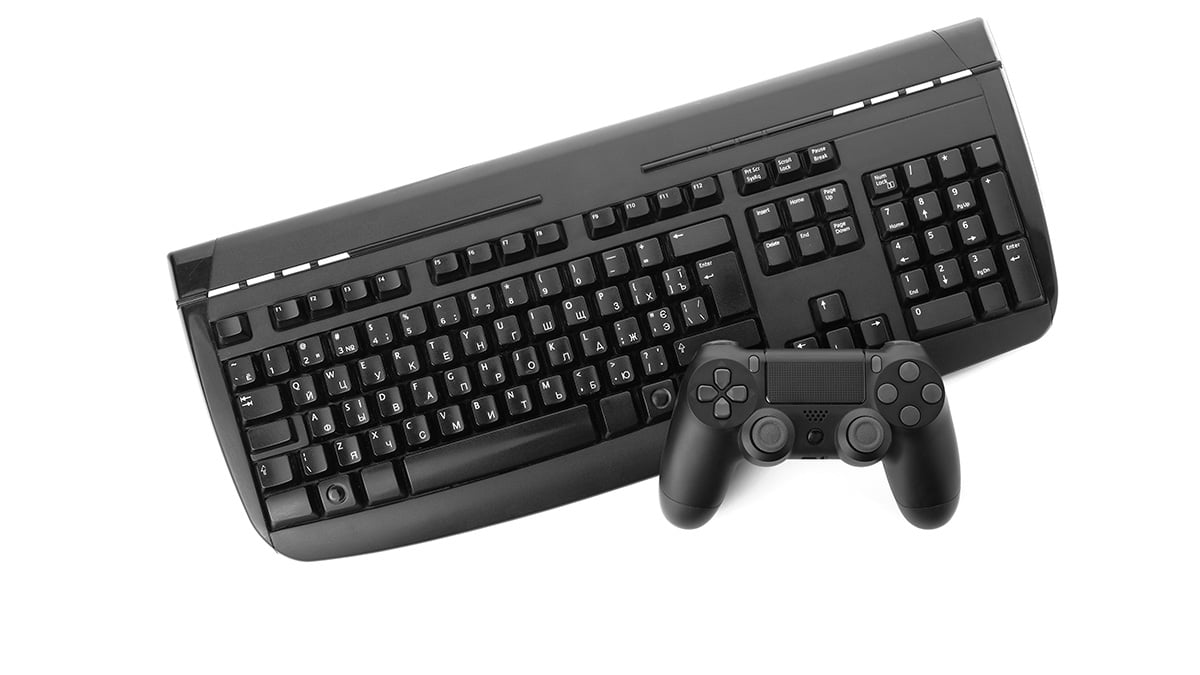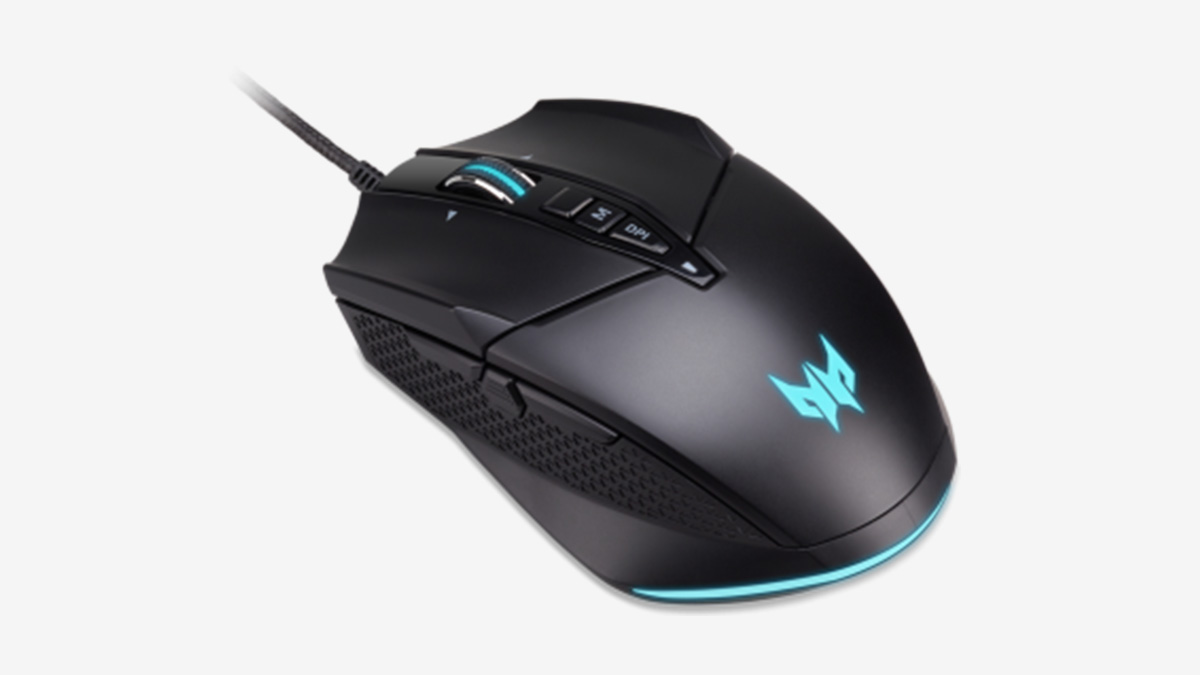
On personal computers, and increasingly on gaming consoles, you have the choice of using a controller or using a mouse and keyboard to play your games. Gamers often have strong feelings about which option is superior, but what is the real answer?
Controller vs. gaming mouse and keyboard
The debate over controller versus mouse and keyboard has been ongoing for decades. Although the mouse and keyboard offer greater precision and faster reaction times, many gamers prefer the controller for its comfort and ease of use during long gaming sessions. Ultimately, the choice of control method is personal and often comes down to what you first used and grew up with. However, the type of game you are playing also matters. For example, first-person shooter (FPS) games require high-speed, precision aiming, whereas racing games are more enjoyable if you can feel tactic feedback through the controller. So how does the controller versus mouse and keyboard debate unfold in terms of features, pros and cons, accessibility, and more?
Console gaming controller
A game controller for PC or console is an input device used with video games or entertainment systems to provide input to a video game. Over the years, game controllers have been developed that come in many different forms, including joysticks, pads, and steering wheels. Modern gaming consoles have highly engineered controllers. The PlayStation has the DualShock 4 and DualSense controllers, and Microsoft offers the Xbox Wireless Controller.
Controllers consist of a set of face buttons, pressure-sensitive triggers, and dual joysticks used for movement. Depending on the manufacturer, they may also sport touch pads, directional pads, lighting, rumble effects, and more.
PC controllers
Personal computers (PCs) are usually controlled through a mouse and keyboard, although gamers often play PC games by connecting their favorite controller to their computer. Mice and keyboards for gaming come in a wide variety of options. The most important factors to consider are the latency (how responsive a keyboard is), switch types (the feeling of the keypress and the noise it makes), and the overall comfort and feel. From there, you can decide if you'd like additional features like RGB backlighting, media controls, or software customization options that help you make your board feel just right for you. Most gamers look for mechanical keyboards as they typically offer lower latency, more features, and better build quality.
Differences between gaming keyboard and mouse and controller
The best part about gaming mice is their speed and accuracy. The analog sticks on a controller are much slower by comparison and have a limited range of motion and sensitivity, so with a controller it takes longer for the camera to reach the spot you want to aim at. With a mouse, you can instantly and precisely move your targeting reticle. Console versions of games typically compensate for this lack of speed and aiming precision by providing varying levels of aim assistance.
The main weakness of a mouse for aiming and camera movement is that you need a flat surface on which to use it, which typically means you have to be seated at a desk. By contrast, controllers can be used from the comfort of your sofa.
Keyboards have the benefit of having up to 108 buttons literally under your fingertips, whereas a controller only has a small number of buttons: on each side and on the face. Furthermore, using face buttons requires lifting your thumb from the analog stick, restricting the number of simultaneous actions you can make.
One of the downsides of gaming keyboards is that they are not analog, so they cannot allow for nuanced movement control. With a controller, you can make a character move or walk at varying speeds depending on the force of your input.
The most obvious advantages a controller has over a mouse and keyboard are simplicity and comfort. Controllers are designed to be intuitive and easy to use. Moreover, developers of console games are generally forced to create control schemes that suit the default controller of the specific console.
Modern controllers include haptic feedback, which adds a layer of immersion to the gaming experience.
Aim assistance

Aim assistance—which generally involves snapping the reticle onto a target once a player’s controller has moved the reticle to within a certain distance—makes sense for games that need precision aiming but are being played using a controller. Players using a mouse, although they might want it, do not usually have aim assistance. But in cross-platform games, you can find players connecting both from PCs (using a mouse and keyboard) and from consoles (with aim assistance), and this unfair combination often generates controversy. However, aim assistance is not always available in cross-platform games. In November last year, Blizzard announced that for Overwatch 2, Aim Assist will work in all game modes except Competitive when console players are grouped with PC players and enter the crossplay queue.
Performance of mouse and keyboard vs. controller in different genres
The best controller for any particular game generally depends on what the game focuses on. The following are some general rules:
- Games that focus on moving an object or character through an environment are better played with analog controls, such as the analog stick on a controller or a steering wheel.
- Games that focus on using button combinations are better played with controllers.
- Games that focus on aiming (including targeting in isometric view) are best played with a mouse and keyboard.
- Games that focus on the use of many different actions/abilities that can be hotkeyed are best played with a keyboard and mouse.
Most games will fall into one of these broad categories. Many games will fall into more than one of these categories, and in that case, an argument can be made for using either a controller or keyboard and mouse.
Fighting games and controllers go hand-in-hand, as the game inputs are usually matched directly to the buttons of a handheld controller, and the freedom afforded by the analog stick of the controller allows for improved mobility during matches.
Racing games generally play better with controllers. Vehicles tend to be easier to direct with controllers, and the analog stick of the controller enables nuanced speed control. Furthermore, haptic feedback when you go over a jump or change gear can make the game more immersive.
Action RPGs, including horror games, do not typically require high precision, and mêlée combat (i.e., hack and slash) is better suited to controllers than a mouse and keyboard.
Simulation games, such as Civilization IV and Dwarf Fortress, generally require a keyboard and mouse. A mouse is essential for navigating their deep, text-heavy menus, and keyboard hotkeys are useful for assigning and automating the many tasks of your workers and warriors.
MOBAs, the pinnacle of competitive games and esports, were originally created as an alternate mode in Warcraft III, and their click-to-move gameplay reflects that lineage. Players using a keyboard can take advantage of the number/function row that allows quick access to all abilities.
RTS games need a mouse and keyboard to scroll around the map, wrangle specific groups of units, and set hotkeys to swap among squads.
Who is the winner?
There is no clear winner between controllers versus mouse and keyboard for gaming. Both input methods have their pros and cons, so ultimately it comes down to personal preference.
If you want to test out some new gaming controllers or mice and keyboards, check out some of the latest devices developed by Acer:

Featuring asymmetric joysticks and dual vibration motors, this controller will stay comfortable for hours of gaming.

This cutting-edge gaming keyboard is perfect for gamers who need a tactile keystroke, as it features Kailh Blue mechanical switches.

The Predator Cestus 335 offers up to 19,000 dpi scrolling, with 5 dpi shift levels, offering extreme precision.








